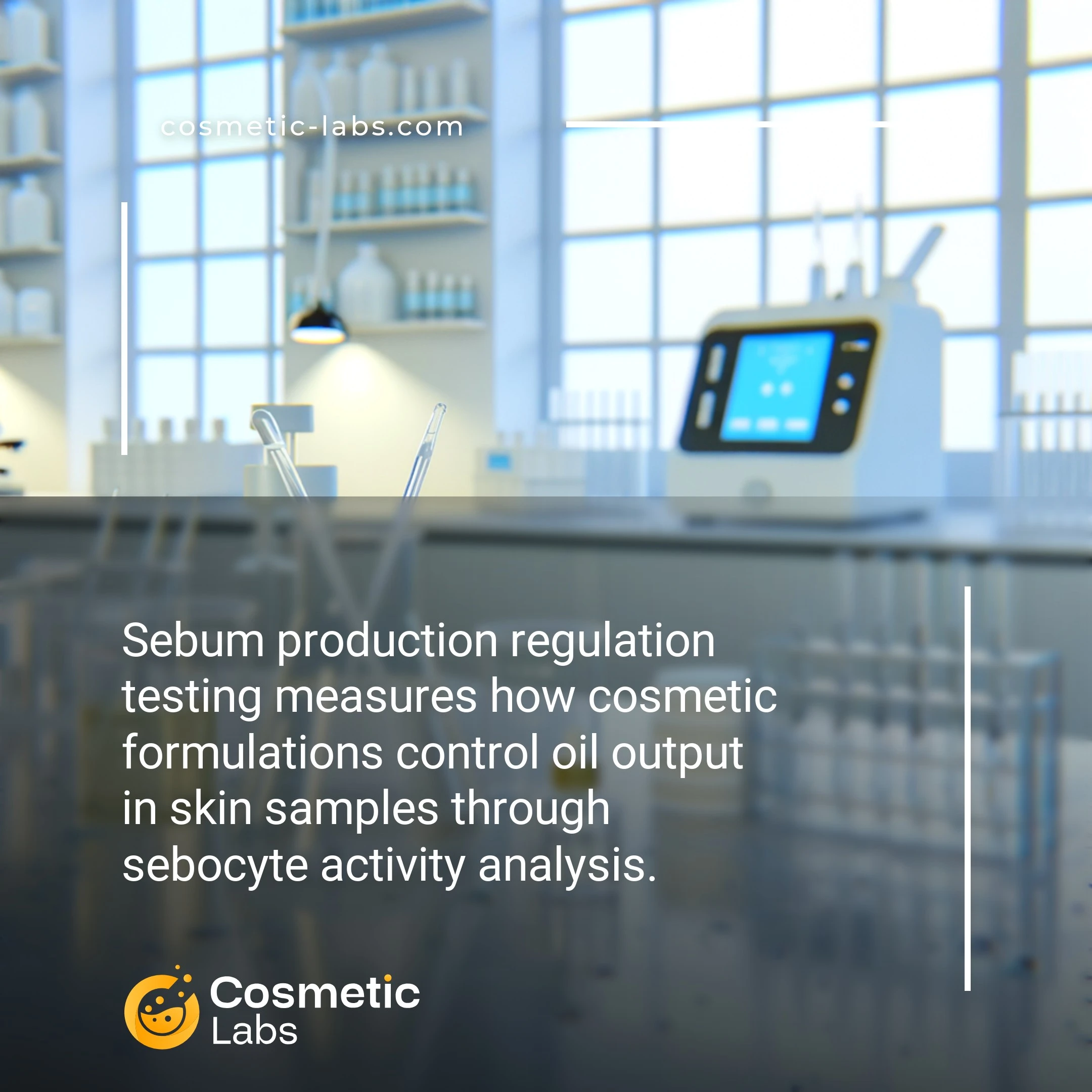Sebum Control Testing Services for Oily Skin Products

What is Sebum production regulation?
Sebum production regulation testing is a preclinical evaluation method that measures how cosmetic formulations control excess oil secretion in oily skin types. Labs use sebum tape analysis and sebometry devices to quantify oil reduction rates over 4-8 week periods, providing brands with concrete data on their product’s ability to balance sebaceous gland activity without over-drying the skin barrier.
Why do you need this service?
Cosmetic labs on our platform use sebum measurement protocols to validate oil-control claims for mattifying primers, sebum-regulating serums, and pore-minimizing treatments. These standardized tests measure sebaceous gland activity reduction over 4-8 week periods, providing brands with quantifiable data for regulatory submissions and marketing claims that meet FDA cosmetic labeling requirements.
Who provides Sebum production regulation services?
All cosmetic labs providing Sebum production regulation services
There is no company providing these services at the moment.
Sebum Production Control Testing for Oily Skin Formulations
Specialized labs on our platform offer sebum production regulation testing to validate your anti-shine and oil-control formulations. These services measure how effectively your products reduce excess sebum output and control oily skin conditions through precise laboratory protocols.
Sebaceous Gland Activity Measurement
Labs use sebum tape analysis and spectrophotometric methods to quantify oil production before and after product application. Testing typically runs for 4-8 weeks with measurements taken at 2, 4, and 6-hour intervals post-application.
Key testing parameters include:
- Sebum excretion rate (μg/cm²/hour)
- Lipid composition analysis
- Pore size reduction metrics
- Skin surface pH changes
Oil-Control Efficacy Validation
Partner labs conduct controlled studies using standardized protocols like the Sebumeter® method to validate your product’s oil-absorbing and mattifying claims. Tests measure sebum levels on T-zone areas and compare results against untreated control sites.
Documentation includes statistical analysis, photographic evidence, and regulatory-compliant reports. Most studies require 20-30 subjects with oily skin types (Fitzpatrick scale II-IV) for statistically significant results.
Connect with verified cosmetic labs through our platform to discuss sebum regulation testing protocols tailored to your specific formulation needs and target claims.
Practical Applications of Sebum Production Regulation Testing Services
Beauty brands rely on sebum production regulation testing services to validate oil-control claims and optimize formulations for oily skin consumers.
Anti-Acne Product Development
Labs measure sebum output using sebotapes and corneometry to evaluate active ingredients like niacinamide, salicylic acid, and zinc compounds. Testing protocols track sebum reduction over 28-day periods, providing data for regulatory submissions and marketing claims.
Brands test different concentrations of oil-control actives to identify the minimum effective dose that reduces sebum without causing irritation. This approach helps optimize product performance while maintaining skin barrier function.
Mattifying Cosmetic Formulation
Cosmetic labs evaluate mattifying powders, oil-absorbing polymers, and sebum-regulating peptides through controlled sebum measurement studies. Testing compares shine reduction across different application methods and wear times.
Labs use specialized equipment like Sebumeter SM815 to quantify oil absorption rates and duration of mattifying effects. This data supports product positioning and helps brands differentiate their formulations in competitive markets.
| Testing Method | Measurement Parameter | Typical Timeline | Key Application |
|---|---|---|---|
| Sebotape Analysis | Sebum lipid composition | 2-4 weeks | Active ingredient screening |
| Corneometry | Surface oil levels | 1-8 hours | Immediate oil control |
| Sebumeter Readings | Sebum production rate | 4-8 weeks | Long-term regulation claims |
| Shine Assessment | Visual oil reduction | 2-12 hours | Mattifying product validation |
Partner with experienced cosmetic labs on our platform to access specialized sebum testing equipment and regulatory expertise for your oil-control product development needs.
